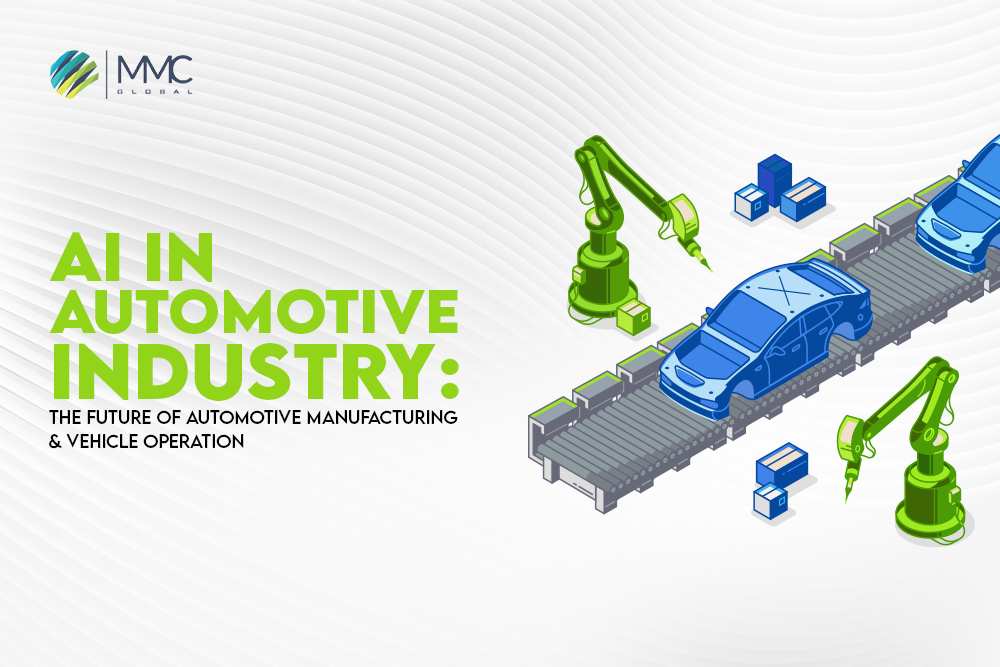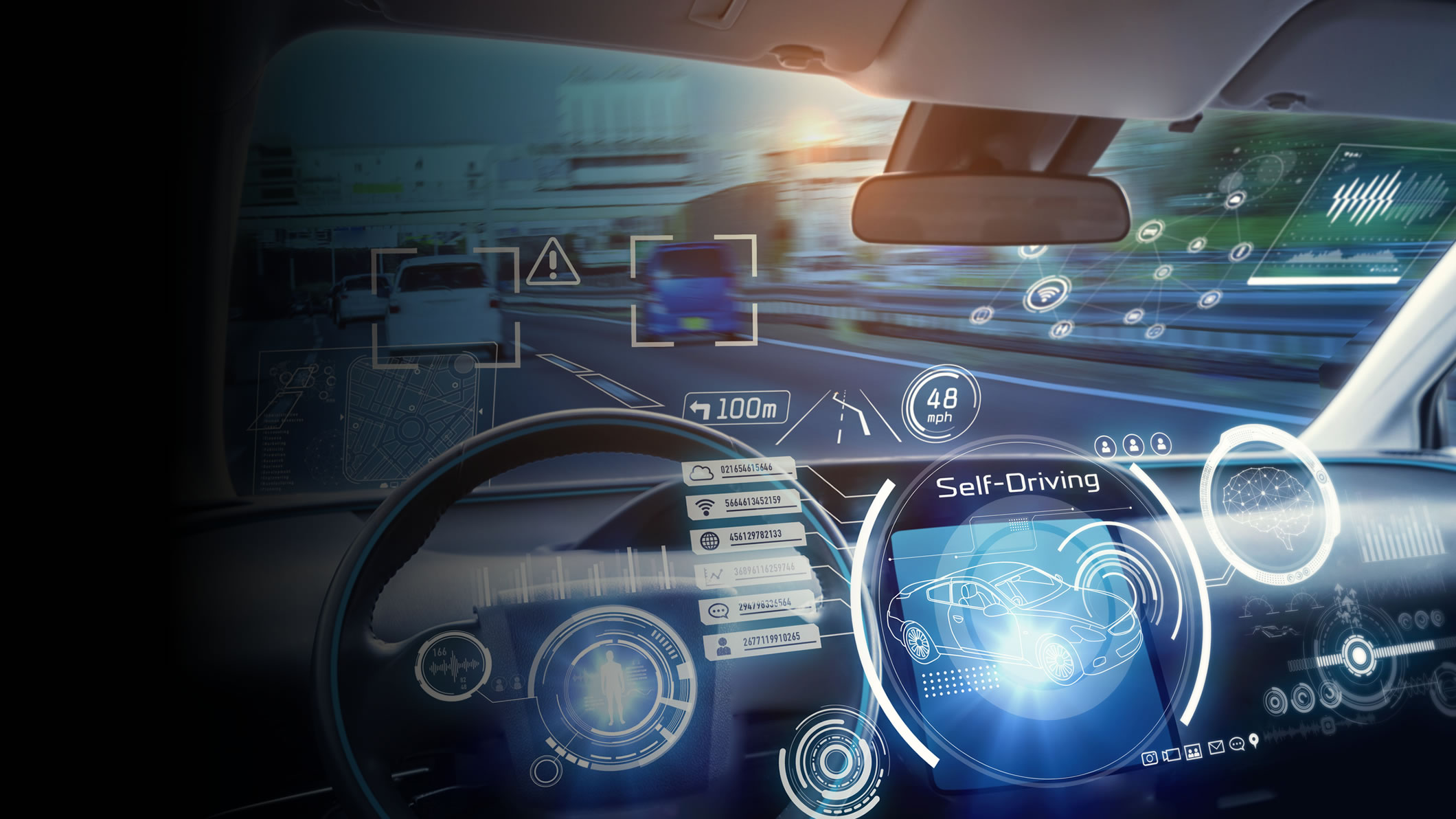AI In Automotive Industry – The Future Of Automotive Manufacturing & Vehicle Operation


The expansion of AI in automotive industry is not negligible if we talk about the fastest production and release of new models. AI in automotive industry is the fastest-evolving industry that allocates human and computational resources to make manufacturing efficiency possible.
With AI, automotive manufacturing and the driving of vehicles seem like a higher level of efficiency. Moreover, many automotive industry has adopted AI, and some are still in a fog. However, research shows that the remaining companies will soon wholly build automotive manufacturing with AI-based robots.
If you think the potential of AI will end at only self-driving or automated cars, you are wrong. AI evolved in a fast-paced and has been built with multiple features that make driving or manufacturing easy and secure. In fact, from designing to manufacturing and distribution to promotion, AI plays a pivotal role in getting maximum output.
Let’s discuss this hot button inventions that make a huge difference in the automotive industry.

What Is AI In Automotive Industry?
AI in automotive industry is like giving cars a brain and teaching them to think and act independently, just like a human driver, but with some high-tech tricks. Imagine your vehicle being able to see and understand the road, other cars, and even pedestrians. That’s what AI does – it helps cars see, think, and make decisions, making driving safer and more convenient.
At MMC Global, we help the automotive industry implement AI and ML in their mechanism of manufacturing heavy automotive parts. Moreover, we assist in streamlining operations, workers and employee collaboration, and deep analysis of data and insights.
AI in Vehicle Driving
One big deal with AI in cars is self-driving technology. It’s like having a robot chauffeur that can take you where you want to go without you having to touch the steering wheel. AI also helps these self-driving cars navigate busy streets, make turns, and avoid accidents by using sensors and clever computer programs.
But AI isn’t just for self-driving cars; it’s also improving regular vehicles. It helps with voice commands, where you can talk to your car to control things like the radio or find directions. AI even helps cars stay healthy by telling us when they need a check-up or repairs. So, AI in automotive industry is all about making cars smarter, safer, and more helpful for drivers and passengers.
AI in Automotive Manufacturing
AI in automotive industry isn’t limited to just driving; it plays a significant role in how cars are made, too. Imagine AI as the super-smart assistant on the car factory floor, helping humans build vehicles faster and better.
AI is used in manufacturing automotive in several ways:
Robotic Assembly
Think of AI as the conductor of an orchestra of robots. It controls machines that assemble car parts with precision and speed. These robots can weld, paint, and assemble vehicles more accurately than humans, leading to higher-quality cars.
Quality Control
AI has a keen eye for spotting flaws. It uses cameras and sensors to examine every inch of a car’s body and parts, ensuring everything is perfect. If it finds any problems, it can alert human workers to fix them.
Supply Chain Management
AI is like a logistics wizard. It helps car manufacturers plan and manage the flow of parts and materials needed to build cars. It also ensures that the right elements are in the right place at the right time, preventing delays.
Read more: AI in Manufacturing – A Futuristic Transformation In Manufacturing Industry
Predictive Maintenance
Just like in cars on the road, AI helps keep machines in the factory running smoothly. It can predict when a machine might break down and schedule maintenance before it happens. AI keeps the assembly line running without interruptions.
Energy Efficiency
AI can also help save energy in the manufacturing process. It optimizes power and resources, reducing the environmental impact of making cars.
So, in the manufacturing world, AI is the smart partner that ensures cars are built efficiently, with high quality, and in an eco-friendly way. It’s all about making the car manufacturing process as smooth and smart as the cars.
Ways in Which AI Elevates the Automobile Sector
AI has brought about a transformative revolution in the automobile industry. It offers a multitude of benefits that span across various aspects of vehicle development, operation, and customer experience. Here’s a detailed look at some of the significant advantages of vehicle operation and manufacturing:
In-Vehicle Operation
Enhanced Safety
One of the most prominent benefits of AI in the automotive sector is improved safety. AI-powered features like advanced driver-assistance systems (ADAS) can monitor the surroundings, detect potential dangers, and take corrective actions. Furthermore, it reduces the risk of accidents as well as saves lives. Features like adaptive cruise control, lane-keeping assist, and automatic emergency braking are prime examples.
Autonomous Driving
AI enables the development of self-driving or autonomous vehicles. These cars can navigate complex traffic scenarios, making roads safer by reducing the chances of human error, such as distracted or impaired driving. Additionally, they provide greater mobility options for individuals unable to drive due to age or disabilities.
Reduced Traffic Congestion
AI can optimize traffic flow and reduce congestion by controlling traffic lights and adjusting vehicle speeds. This leads to shorter commute times, less fuel consumption, and reduced emissions, benefiting both the environment and commuters.
Improved Fuel Efficiency
AI-driven engine management systems can optimize fuel injection, air intake, and other factors to maximize fuel efficiency. AI not only reduces operational costs for vehicle owners but also lowers carbon emissions, contributing to a greener planet.
Predictive Maintenance
AI algorithms can predict when a vehicle component will likely fail, enabling proactive maintenance. This prevents costly breakdowns and ensures that vehicles are always in optimal condition.
Personalized In-Car Experience
AI-powered infotainment systems can analyze driver preferences and offer personalized content and services. The personalization experience includes recommending music, suggesting nearby restaurants, and even adjusting the interior climate to suit individual preferences, making each ride more enjoyable.
Reduced Environmental Impact
AI helps optimize energy consumption in electric vehicles, extending their range and making them more practical. Additionally, AI-driven manufacturing processes reduce waste and energy consumption, making the production of cars more sustainable.
Enhanced Customer Support
AI-powered chatbots and virtual assistants offer immediate assistance to drivers and vehicle owners. They can provide troubleshooting guidance, schedule service appointments, and answer inquiries, improving the overall customer experience.
Streamlined Manufacturing
In manufacturing, AI-driven robots and automation streamline production processes. Reducing errors and increasing efficiency leads to cost savings and faster production within less time.
Data Analytics for Improvement
AI helps car manufacturers gather and analyze vast amounts of data from sensors and customer feedback. This data can be used to refine vehicle designs, develop new features, and continuously improve the overall product.
In Automobile Manufacturing
Process Optimization
AI algorithms can optimize production processes, helping manufacturers reduce waste, improve resource allocation, and streamline operations. This leads to cost savings as well as increased efficiency.
Predictive Maintenance
AI-powered predictive maintenance systems can analyze data from sensors and IoT devices on production equipment and vehicles. Moreover, identifying potential issues before they become major problems and reducing downtime and maintenance costs are the biggest achievements of AI in automotive industry.
Quality Control
AI-based vision systems and machine learning algorithms can more accurately detect defects in components and vehicles than human inspectors. As a result, it improves product quality and reduces the likelihood of recalls.
Supply Chain Management
AI can enhance supply chain management by optimizing inventory levels, demand forecasting, and route planning. It ensures that parts and materials are available, reducing production delays.
Customization and Personalization
AI can facilitate the customization of vehicles by analyzing customer preferences and providing recommendations. Additionally, it allows manufacturers to offer personalized options, enhancing customer satisfaction.
Safety Improvements
AI-driven technologies like advanced driver assistance systems (ADAS) and autonomous driving rely on AI algorithms to enhance vehicle safety. In fact, these systems can help prevent accidents and reduce the severity of collisions.
Reduced Labor Costs
Automation through robotics and AI can reduce the need for manual labor in repetitive and dangerous tasks, leading to lower labor costs and improved worker safety.
Data Analytics
AI can process vast amounts of data generated during the manufacturing process to identify trends, anomalies, and areas for improvement. Therefore, the data-driven approach helps manufacturers make informed decisions and continuously improve operations.
Improved Design and Prototyping
AI-powered design tools can assist engineers in creating more efficient as well as innovative vehicle designs. Generative design, for example, can explore a wide range of design possibilities to optimize for various factors like weight, strength, and aerodynamics.
Human-Robot Collaboration
Collaborative robots, or cobots, powered by AI can work alongside human workers in manufacturing tasks, increasing productivity and safety.
Supply Chain Transparency
Blockchain technology, often integrated with AI, can provide transparency and traceability in the supply chain. It reduces the risk of counterfeit parts as well as ensures the authenticity of components.
Market Research and Consumer Insights
AI can analyze social media, customer reviews, and market trends. With the help of these factors, the automotive industry can provide manufacturers with valuable insights into consumer preferences as well as market demand.
Wrapping Up
In conclusion, the integration of AI in automotive industry brings about a host of benefits, including improved safety, reduced environmental impact, enhanced customer experiences, and greater efficiency in both manufacturing and vehicle operation. However, AI is transforming the automobile manufacturing industry by improving efficiency, quality, safety, and customization while reducing costs and environmental impact. These benefits make AI a crucial component of the modern automotive manufacturing process. As AI continues to advance, it holds the potential to shape a future of safer, more sustainable, and smarter transportation.
[Nasir-hu-mein h1-ct=”Nasir ho ma” pp=”nasir nhi ho ma “]


